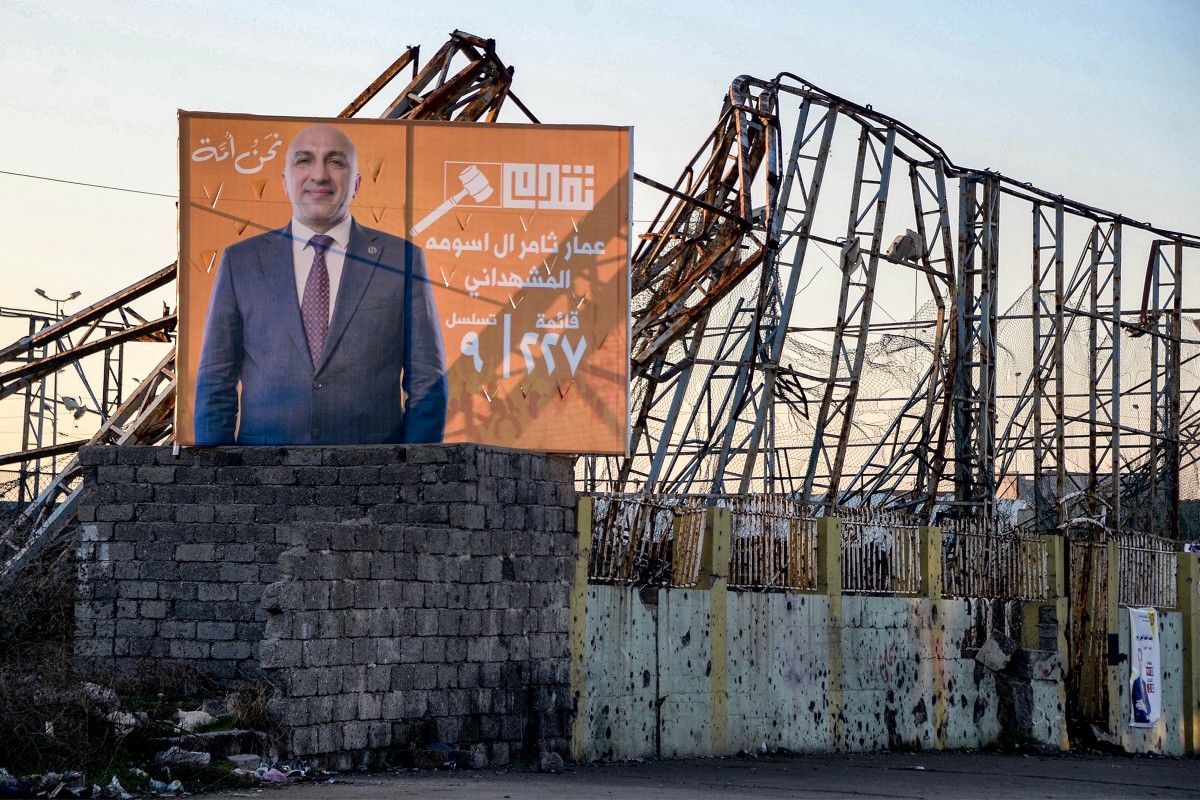Baghdad, Iraq – Iraqis vote on Monday to choose their provincial councils, the first such election in a decade and one which is expected to strengthen powerful Shiite pro-Iran groups.
The vote will take place with disillusionment widespread among the country’s 43 million inhabitants, with endemic corruption eating away at the oil-rich nation.
Ballots will be held in 15 of Iraq’s provinces but not in the other three which are Kurdish and operate under a separate autonomous system.
The election is seen as a key test for the government of Prime Minister Mohammed Shia al-Sudani.
He rose to power just over a year ago on the back of a parliamentary coalition of pro-Tehran parties and has focused on developing public services and infrastructure ravaged by decades of conflict.
“Turnout to me is the ultimate gage of satisfaction,” Renad Mansour, a senior research fellow at Chatham House, told AFP.
It will show, he said, “whether the Sudani government’s economic populism — the policy of giving out (public sector) jobs — can be successful and can capture the young population”.
On Monday morning at 7:00 am (0400 GMT), 7,166 polling stations will open under tight security, before closing at 6:00 pm (1500 GMT).
Some 17 million people are eligible to vote, with 6,000 candidates vying for just 285 seats in the powerful provincial councils.
They were established after the 2003 US-led invasion of Iraq that toppled Saddam Hussein and wield important powers, including selecting regional governors and allocating health, transport and education budgets.
Critics say that the councils are nests of corruption and enable clientelism.
‘Huge competition’
The vote is expected to consolidate the position of the ruling Coordination Framework coalition, an Iran-aligned bloc that brings together Shiite Islamist parties with factions of Hashed al-Shaabi, a network of former paramilitary units integrated into the regular army.
For some heavyweights within the alliance, the elections are an “opportunity” to “prove they have a social base and that they are popular” following disappointing results in the 2021 national elections, said Mansour.
He added that there was “huge competition right now” among Shiite groups for the regional governor roles.
Influential Shiite cleric and political kingmaker Moqtada Sadr has joined the opposition and is boycotting the vote.
The provincial councils were initially abolished in late 2019 as a concession to massive anti-government protests.
However, Sudani’s government subsequently re-established them, with Monday’s elections the first since 2013.
“What use are these elections to us?” said Abu Ali, a 45-year-old taxi driver, who declined to give his full name.
“The years pass, elections come around again, the candidates change, and our situation stays the same,” he told AFP in Baghdad ahead of the vote.
The candidates “don’t build anything, they just seek the interest of their own parties,” he added.
As a reflection of Iraq’s multi-confessional and multi-ethnic population, 10 seats are reserved for minorities, namely Christians, Yazidis and Sabians.
In addition, a 25 percent quota has ensured that 1,600 of the candidates are female.
Observers are keeping a close eye on Kirkuk, an oil-rich northern province where the historic rivalries between the major parties of the Arab, Kurdish and Turkmen communities could resurface.
Despite drone attacks against US and Western coalition troops by pro-Iranian armed groups, regional tensions and the fallout of the Israel-Hamas war are not expected to weigh on the results.








